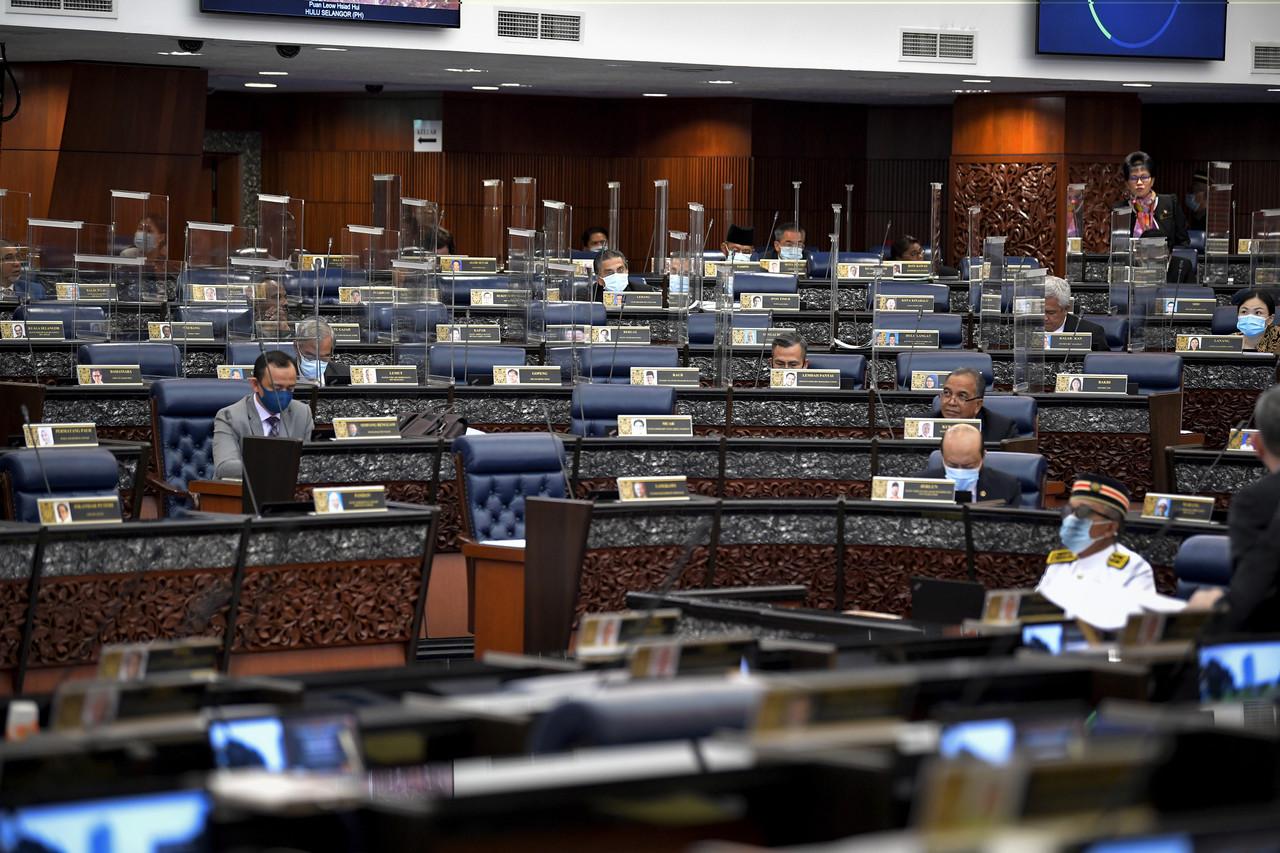High Court rules one-day Parliament sitting valid
The judge says the one-day sitting was unusual and unprecedented but not against the law.
Just In
The Kuala Lumpur High Court today ruled that the one-day Parliament sitting on May 18 was valid and in accordance with the law as it was to prevent the spread of Covid-19.
Judge Ahmad Kamal Md Shahid made the ruling after dismissing the originating summons filed by lawyer R Kengadharan and social activist D Arumugam against Prime Minister Muhyiddin Yassin and former Dewan Rakyat speaker Mohamad Ariff Md Yusof.
“I have no doubt the one-day sitting was unusual and unprecedented, but to me, it was not something illegal but legal in the face of the law,” he said.
He also said the two letters from the leader of the house, that is the prime minister, dated April 17 and May 12 giving May 18 as the only day for the Parliament sitting were fair and reasonable.
He added that the government had the right to protect the lives of MPs from the risk of Covid-19.
Kengadharan and Arumugam filed the suit on May 15, naming Muhyiddin and Ariff as the first and second defendants, seeking a declaration that the May 18 Parliament sitting was null and void as it only heard the Yang di-Pertuan Agong’s speech and therefore contravened Article 55 (1) of the Federal Constitution.
They claimed the first sitting was illusory as no other important events took place as stated under Standing Order 14 of the Dewan Rakyat.
Dewan Rakyat secretary Nizam Mydin Bacha Mydin, in his affidavit filed on behalf of Muhyiddin and Ariff, said the May 18 sitting was in accordance with the Federal Constitution and the Dewan Rakyat Standing Orders.
He said the application by Kengadharan and Arumugam had no merit as the validity of Dewan Rakyat proceedings could not be challenged in any court as stipulated under Article 63 (1) of the Federal Constitution.
On May 13, Ariff, in a statement, said he had received a notification letter signed by the prime minister stating the government’s decision to amend the agenda for the first meeting of the third session of the 14th Parliament to focus only on the royal address.
He said this was due to the fact that the Covid-19 outbreak in the country was still ongoing.
Kamal, in his 16-page judgment, said the court also found that the leader of the house, being the prime minister of the country, must have taken into consideration all relevant information including reports, documents and the status of the pandemic before issuing the letters in question.
“The plaintiffs submitted that the legislature in the UK, Singapore and Canada have convened to pass legislation necessitated by the Covid-19 pandemic.
“I am of the opinion that each country in the world is facing its own unique circumstances and challenges in dealing with the pandemic, thus each government has its own practices, strategies and solutions to deal with these unprecedented circumstances.
“I am also of the considered view that the one-day sitting did not violate the doctrine of separation of powers or prevent Parliament from carrying out its exclusive constitutional duties,” Kamal said.
He added that the government’s justification concerning the pandemic was reasonable as it was to prevent the risk of spreading Covid-19 and to avoid creating another cluster.
“To me, as long as the government has given a reasonable justification and explanation as to why the one-day sitting was held, this court will not interfere with the reasons or findings of the government,” he said.
Kamal also said the one-day sitting had met the criteria in Article 55(1) of the Federal Constitution, which states that Parliament must reconvene not more than six months from the date of the last sitting.
“In this case, Parliament did reconvene within six months from the last sitting, for example on Dec 19 last year.
“I am also of the view that is is within the constitutional right of the government to meet even for a day as long as it is within six months of the last sitting,” he added.
“I am also of the view that even if the one-day sitting is not in accordance with the Standing Orders, it will not amount to a non-abiding with the Orders of Business, nor can it be declared invalid for violating the constitution,” he said, adding that the plaintiffs’ application for a declaration had no merit in law.
When met outside the court, Kengadharan and Arumugam, represented by lawyer Bastian Vendargon, said they would file an appeal against the decision.
Senior federal counsel Suzana Atan and S Narkunavathy acted for the defendants.
Subscribe to our newsletter
To be updated with all the latest news and analyses daily.
